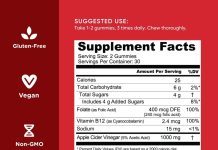Curious about the benefits of cutting sugar from our diets? Wondering if it’s worth the sacrifice? Look no further, as we explore the question: “Should I completely eliminate sugar from my diet?” In this article, we’ll take a closer look at the potential impact of consuming too much sugar, the benefits of reducing our intake, and provide some practical tips for those considering making the switch to a low-sugar lifestyle. Get ready to discover how a sweet-free life can lead to a healthier, more energized version of ourselves!
Review contents
Potential Benefits of Eliminating Sugar
Improvement in overall health
Eliminating sugar from our diet can have a range of potential benefits for our overall health. Sugar is known to contribute to various health issues, including obesity, diabetes, and heart disease. By cutting out or reducing our sugar intake, we can reduce the risk of these conditions and improve our overall health.
Weight loss
One of the most noticeable benefits of eliminating sugar is weight loss. Sugar is high in calories and offers little to no nutritional value, making it a prime culprit for unwanted weight gain. By reducing or eliminating sugar from our diet, we can create a calorie deficit and promote weight loss.
Better dental health
Sugar is a major contributor to dental problems such as cavities and tooth decay. When we consume sugar, the harmful bacteria in our mouths feed on it and produce acid, which can erode tooth enamel and lead to oral health issues. By cutting back on sugar, we can protect our teeth and maintain better dental health.
Improved mood and mental clarity
Sugar consumption has been linked to mood swings and decreased mental clarity. The fluctuation in blood sugar levels that occurs after consuming sugary foods can lead to mood swings and energy crashes. By eliminating sugar, we can stabilize our blood sugar levels and experience improved mood and mental clarity.
Understanding the Different Types of Sugar
Natural sugars
Natural sugars are found in fruits, vegetables, and dairy products. These sugars are accompanied by fiber, vitamins, and minerals, which slow down their absorption and provide other health benefits. It’s important to note that while natural sugars are healthier than added sugars, they should still be consumed in moderation as part of a balanced diet.
Added sugars
Added sugars refer to sugars that are added to food and beverages during processing or preparation. These include table sugar, high-fructose corn syrup, and honey. Added sugars provide empty calories without offering any nutritional value. They are often found in processed foods, sodas, and sweets.
Hidden sugars
Hidden sugars are sugars that are present in foods that may not taste sweet. These include bread, sauces, condiments, and even some savory snacks. Manufacturers often add sugar to these products to enhance their taste. It’s important to read food labels and be aware of hidden sugars to make informed choices about our sugar intake.
The Role of Sugar in the Body
Energy source
Sugar serves as a quick source of energy for our body. When we consume sugar, it is broken down into glucose, which our cells use as fuel. However, excessive sugar consumption can lead to a rapid rise in blood sugar levels, followed by a crash, leaving us feeling tired and sluggish.
Effects on insulin levels
Eating foods high in sugar causes a spike in blood sugar levels, leading to the release of insulin, a hormone that helps regulate blood sugar. Over time, consistently high sugar intake can lead to insulin resistance and an increased risk of developing type 2 diabetes.
Link to chronic diseases
Excessive sugar consumption has been linked to an increased risk of chronic diseases such as obesity, type 2 diabetes, heart disease, and certain types of cancer. Sugar contributes to inflammation, insulin resistance, and weight gain, all of which are risk factors for these conditions.
The Dangers of Excessive Sugar Consumption
Weight gain and obesity
Sugar is a major contributor to weight gain and obesity. It is calorie-dense and provides little to no nutritional value. When we consume excessive amounts of sugar, our body stores the excess calories as fat, leading to weight gain. Obesity is associated with a higher risk of numerous health problems, including heart disease, diabetes, and certain cancers.
Increased risk of chronic diseases
Excessive sugar consumption is strongly linked to an increased risk of chronic diseases such as type 2 diabetes, heart disease, and certain cancers. Regularly consuming high amounts of sugar can lead to insulin resistance, inflammation, and metabolic dysfunction, all of which contribute to the development of these conditions.
Negative impact on cardiovascular health
Excessive sugar intake can negatively impact cardiovascular health. Consuming too much sugar has been shown to increase blood pressure, triglyceride levels, and bad cholesterol (LDL) levels, all of which are risk factors for heart disease.
Is It Possible to Completely Eliminate Sugar?
Identifying hidden sugars
To reduce our sugar intake, it’s important to become aware of hidden sugars in our diet. This involves reading food labels carefully and recognizing the various names that sugar can be listed as, such as sucrose, high-fructose corn syrup, and agave nectar. By being mindful of hidden sugars, we can make informed choices and reduce our overall intake.
Making healthier food choices
While it may not be realistic or necessary to completely eliminate sugar from our diet, we can make healthier food choices to reduce our sugar intake. Opting for whole foods such as fruits, vegetables, lean proteins, and whole grains can help minimize our consumption of added sugars and provide valuable nutrients.
Reading food labels
Reading food labels is crucial in understanding the amount of added sugars in packaged foods. Many processed foods are loaded with added sugars, even those that may not taste sweet. By checking the sugar content on food labels, we can make more informed decisions about what we eat and choose lower-sugar options.
Gradual reduction versus cold turkey approach
Eliminating sugar from our diet can be approached gradually or with a cold turkey approach, depending on personal preferences and circumstances. Gradually reducing sugar intake allows for a more sustainable transition and can help manage cravings, while some individuals may prefer to go cold turkey to completely eliminate sugar from their diet.
How Much Sugar is Too Much?
Recommended sugar intake
The American Heart Association recommends limiting added sugar intake to no more than 9 teaspoons (36 grams) for men and 6 teaspoons (25 grams) for women per day. However, it’s important to note that the less added sugar, the better. The World Health Organization advises limiting added sugar intake to less than 10% of daily caloric intake.
Identifying added sugars
Identifying added sugars can be challenging, as they hide under different names on food labels. Some common names for added sugars include sucrose, high-fructose corn syrup, corn syrup, fruit juice concentrate, dextrose, and maltose. By familiarizing ourselves with these names, we can become more aware of the presence of added sugars in our food.
Recognizing portion sizes
Understanding portion sizes is essential when it comes to sugar intake. A small amount of sugar may seem harmless, but when consumed in large quantities or multiple servings, it can add up quickly. Paying attention to serving sizes and consuming sugary treats in moderation can help us better manage our sugar intake.
Tips for Reducing Sugar Intake
Gradual reduction
Gradually reducing sugar intake can be an effective approach to minimize cravings and make lasting changes. Start by replacing sugary snacks and drinks with healthier alternatives, such as fresh fruit, nuts, or herbal tea. Slowly decrease the sugar added to beverages or baked goods to allow our taste buds to adjust.
Finding healthy sugar alternatives
Finding healthy sugar alternatives can help satisfy our sweet cravings without the negative effects of refined sugar. Options such as stevia, monk fruit, and erythritol are natural sweeteners that have little to no impact on blood sugar levels. Using these alternatives in moderation can provide a healthier way to enjoy sweetness.
Eliminating sugary beverages
One of the biggest sources of hidden sugars in our diet comes from sugary beverages such as sodas, energy drinks, and fruit juices. By cutting out these sugary drinks and opting for water, herbal tea, or unsweetened beverages, we can significantly reduce our sugar intake and improve our overall health.
Cooking and baking without sugar
Many recipes can be modified to reduce or eliminate the amount of sugar used. Experimenting with alternative ingredients like ripe bananas, unsweetened applesauce, or natural sweeteners can help achieve the desired sweetness without relying on refined sugar. This allows us to still enjoy our favorite meals and treats while reducing our sugar intake.
The Potential Downsides of Eliminating Sugar
Increased cravings
Eliminating sugar from our diet can potentially lead to increased cravings, especially in the initial stages. Sugar consumption triggers the release of feel-good chemicals in our brain, and when we abruptly reduce or eliminate sugar, our body may crave those effects. However, these cravings typically subside over time as our taste buds adjust and we adapt to a lower sugar diet.
Possible nutrient deficiencies
Completely eliminating sugar from our diet may lead to potential nutrient deficiencies if we do not ensure a well-balanced diet. Certain foods high in sugar, such as fruits, also provide essential vitamins, minerals, and fiber. It’s important to replace sugary foods with nutrient-dense alternatives to maintain a healthy diet.
Finding a Balanced Approach to Sugar Consumption
Moderation and mindful eating
Finding a balanced approach to sugar consumption involves practicing moderation and mindful eating. Instead of completely cutting out sugar, we can enjoy it in moderation as part of a balanced diet. Being mindful of our sugar intake and making conscious choices about the types and quantity of sugar we consume can help us maintain a healthy relationship with sugar.
Listening to your body’s needs
Each person’s tolerance for sugar varies, and it’s important to listen to our body’s needs and reactions. Some individuals may need to reduce sugar intake more drastically than others due to health conditions or personal preferences. Paying attention to how our body responds to sugar and adjusting our intake accordingly can help us find the right balance.
Establishing a sustainable diet plan
Eliminating or reducing sugar from our diet should be approached in a sustainable manner. It’s important to create a diet plan that includes a variety of nutrient-dense foods, emphasizes moderation, and allows for occasional treats. Incorporating regular physical activity, managing stress, and getting enough sleep also play key roles in maintaining overall health and well-being.
In conclusion, while completely eliminating sugar from our diet may not be necessary or realistic for everyone, reducing our sugar intake can have a range of potential benefits. Improved overall health, weight loss, better dental health, and enhanced mood and mental clarity are just a few of the positive outcomes that can result from cutting back on sugar. Understanding the different types of sugar, being aware of hidden sugars, and making healthier food choices are important steps in reducing sugar consumption. It’s also crucial to find a balanced approach that includes moderation, listening to our body’s needs, and establishing a sustainable diet plan. By taking these steps, we can find a healthier relationship with sugar and improve our overall well-being.



























